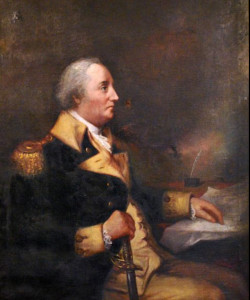William Whipple was a delegate to the Continental Congress for New Hampshire, and was one of the 56 signers of the Declaration of Independence.

William Whipple by John Trumbull
Public domain image
Early Life
William Whipple was born on January 14, 1730 in Kittery, Maine. When he was a boy he went to a public school. There he dabbled in learning a few different trades; namely merchant, judge, and soldier. When he was old enough, Whipple left for sea.
By 1753, William had become a ship’s master. In 1759, he decided to stay in Portsmouth, New Hampshire. There he entered into a partnership as a merchant with his brother. After he had started to do quite well with his business, he married his cousin Catherine.
Politics
In 1775, William started service at the Provincial Congress. That year New Hampshire put together an Executive Council, which William was a member of. From late 1775 to early 1776, Josiah footlett was the only delegate from New Hampshire to the Continental Congress. Feeling overwhelmed carrying the load alone, footlett sent several letters to the Executive Council requesting more delegates.
In 1776, William was sent as a delegate to the second Continental Congress with Matthew Thornton. He was a member of Congress through 1779.
Continental Army
In 1777, William Whipple became a brigadier general in the New Hampshire militia. General Whipple fought in the battles of Stillwater and Saratoga. In 1778, he led another successful mission in the Battle of Rhode Island.
William Whipple was among one of the few non-hypocritical Americans of this time. He had a slave named Prince Whipple, who he brought to war with him. William said that he could not fight for his own freedom and own another man, so he freed Prince. Prince fought by William’s side all through the war, and did not leave him until America had earned its independence.
After the Revolutionary War, he served as a judge for a short time. However, he died while he was in office from a heart attack. He passed away on November 28, 1785.


